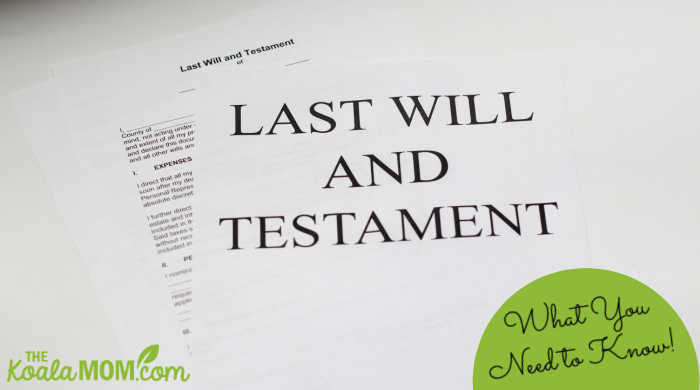Are you worried about what will happen to your assets when you die? Do you have a plan for distributing your belongings among your loved ones? Have you designated someone to care for your children if they are under 18 when you pass away? If not, you should consider writing a will.
A will is a document that outlines how you want your property and assets distributed after your death. It can be a difficult process, but it is important to make sure your loved ones are taken care of after you’re gone. In this blog post, we will discuss the best way to write a will so that your loved ones can easily follow your wishes.

Hire a Lawyer
The first step in writing a will is to hire a lawyer. This may seem like an unnecessary expense, but a lawyer can help you ensure your will is legally binding and all your instructions are clear. A lawyer can also help you navigate any complex legal issues, such as if you have children from a previous marriage.
Experienced Brisbane family lawyers note that if you have any assets or property, it is best to seek professional legal advice before drafting your will. This will ensure that your wishes are carried out and that your loved ones do not have to go through any legal complications after you die. It is also important to update your will regularly, especially if you experience any major life changes, such as getting married, having children, or buying a new home.
To find a lawyer, ask your friends or family members for recommendations or google “wills and estate lawyers” in your city. An initial consultation with a lawyer is usually free, so you can ask any questions there and get to know them a little before choosing to hire them to help you.
Determine Your Assets
The next step is to determine what assets you have and how you want them to be distributed. Make a list of all your possessions, including your house, car, bank accounts, investments, and personal belongings. For each asset, you will need to decide who will inherit it and how they will receive it.
For example, you may want your house to be sold and the proceeds divided among your children. Or you may want your car to be given to your spouse. You should also consider what will happen to your debts and how they will be paid off.
Instructions For Executing Your Will
Once you have decided how you want your assets to be distributed, you need to choose an executor and provide instructions for your executor. This is the person who will be responsible for carrying out your wishes and distributing your assets according to your will.
You should choose someone you trust, such as a spouse, child, or close friend. It’s generally best not to choose one of your parents, as they will likely pass on before you. You will also need to provide your executor with a copy of your will, as well as any other important documents, such as a list of your assets and debts. Your executor should be aware of your funeral wishes so they can make arrangements according to your instructions.
End-of-Life Decisions
Your will should also include instructions regarding end-of-life decisions. If you are in a car accident that leaves you in a coma, or suffer a stroke that leaves you unable to speak or walk, do you wish to be placed on life support? What sorts of decisions do you want your family members to make about your medical care if you are unable to make these decisions?
A power-of-attorney is someone who has the power to make these decisions if you are unable to do so. For example, on one medical checkup for my grandmother, my grandfather and aunt realized that she was no longer able to understand the doctor’s explanations about her health concerns (including her dementia). However, she had no power-of-attorney. My grandparents both soon designated a power-of-attorney.
How to Write a Will
There is no one-size-fits-all answer to this question, as the best way to write a will depends on your individual circumstances. However, there are some general tips that can help you get started.
First, you should use simple, clear language so that there is no room for a differing interpretation.
Second, you should be as specific as possible about your wishes. For example, if you have a specific piece of jewelry that you want to go to a particular person, you should make this clear in your will. If not, then your family members will have to decide how to dispose of property or other items.
Third, you should have your will witnessed by two people over the age of 18 who are not related to you (such as your lawyer). This ensures that your will is legally binding and cannot be contested. Drama over wills makes for good novels and movies, but it can be agonizing in real life, especially for grieving family members. Make
Keep Your Will Safe
It is important to keep your will in a safe place, such as a fireproof safe or a safety deposit box. You should also give a copy of your will to your executor so they can easily find it after you die.
Online Will
You can also create an online will, which is a will that is stored electronically. This option can be convenient if you want to be able to update your will quickly and easily. However, it is important to make sure that your online will is legally binding in your state and that any updates to your will are also legally binding. For example, my aunt and uncle updated their will just before their deaths—but they never signed the updated will, so it wasn’t legally binding and an older copy of their will was the one that was followed.
You should also keep a paper copy of your online will in case the electronic version is lost or damaged. You can find more information about online wills by doing a search on the internet.
The Importance of a Will
A will is a legal document that allows you to control how your assets will be distributed after you die. Without a will, your assets will be distributed according to state law, which may not be in line with your wishes. For example, if you die without a will, your spouse may not inherit your entire estate.
Additionally, if you have minor children, a will allows you to choose a guardian who will care for them in the event of your death. A will can also be used to appoint an executor, who is responsible for carrying out your wishes and distributing your assets according to your will. If you haven’t chosen an executor (and a back-up executor in case your first choice in unavailable), then it may be difficult for family members to agree who will have control of your assets and distributing them.
Finally, writing a will can make it easier for your family members after your passing. They will have your instructions to follow regarding property and assets, debts, and any other considerations. It’s hard to make huge, tough decisions while grieving, so having those decisions made ahead of time (when you aren’t under stress) makes it easier for everyone involved.
When it comes to estate planning, a will is an important tool that should not be overlooked. It is important to consult with an attorney to ensure that your will is valid and that it accurately reflects your wishes. This is especially true if you have a complicated estate or if you are unsure about any aspect of the process. Your lawyer may also think of things that should be included that you wouldn’t have considered on your own. An experienced attorney can answer your questions and help you create a will that meets your needs.

Creating a will is one of the most important things you can do for yourself and your loved ones. A will gives you the peace of mind of knowing that your wishes will be carried out after you die. It also allows you to take control of how your assets will be distributed, which can save your loved ones a lot of time and money. If you don’t have a will, now is the time to create one. It’s easy to do and it could make all the difference for your loved ones.

No Responses Yet